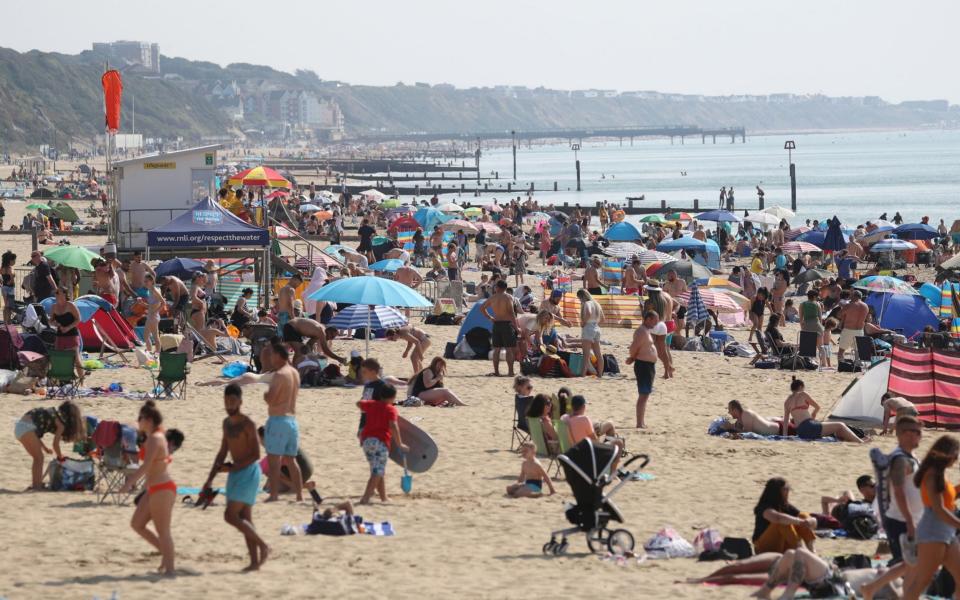Tropical nights on the rise as Britain sees 16 evenings above 20 degrees

Tropical nights were an uncommon phenomenon in Britain, with a handful happening each year.
While the 30 years between 1961 and 1990 seeing 44 tropical nights, this almost doubled in the years between From 1991 to 11 August 2020, 84 such nights were recorded. 21 of the occurred since 2008.
Now, thanks to the heatwave, we have seen 16 such uncomfortably hot evenings this summer, with more forecast for this week.
These hot nights, when the mercury does not drop below 20 degrees, were once so uncommon in Britain that they were not logged, but now a large proportion of our summer nights are spent tossing and turning, and this year looks likely to set a record.
Climate change means that tropical nights are likely to continue to increase year on year, and become a regular part of our summers, meteorologists have warned.
Data shows that the average number of tropical nights per year only became statistically significant after 1995. Now, there has been an unbroken run of at least 10 tropical nights per summer from 2011 to 2020.
The highest minimum nightly temperature this year so far was 22.3 C at Langdon Bay, near Dover, on 8th August. On this date the temperature at nine sites in the UK didn’t drop below 20.0 C, which is the highest number of sites since 26 July 2019 when 20 stations didn’t drop below 20.0 C.
Other tropical night hotspots in August include Luton, Bognor Regis, Hastings, the Isle of Wight, London, and Southampton.
Grahame Madge, a Met Office spokesperson, told The Telegraph: “Minimum daily temperatures of 20.0 C or above are still extremely rare events in the UK, but with a changing climate we can expect to see more incidents. Mostly it is weather stations in the south east of England which record these high temperatures, and there have only been three in Scotland since 1961 and none in Northern Ireland over the same period. However, as well as in increasing frequency of events we can also expect to see more occurrences outsides of the south east of England.
“There is a huge interest from the public about daytime high temperatures. While this is important, tropical night temperatures can be extremely challenging for those with underlying health conditions as it means that when overnight temperatures remain high, it is very difficult to get any respite and rest before the next day’s heat begins to build.”
The heat is set to end this week with torrential rainfall and thunderstorms, and the Environment Agency has warned of possible flooding.
The worst affected areas are expected to be between Birmingham and Cumbria, with rainfall beginning in those areas at 4pm yesterday, although almost the whole of the UK is covered by a Met Office weather warning between now and Thursday evening.
Met Office forecaster Craig Snell said: "For England and Wales over the next four days, there is a risk of some very severe weather in places but it is not going to be everywhere.
"Away from the thunderstorms, it is still going to be very hot.
"It is not going to be wall-to-wall sunshine, but it is not going to be a washout each day."
It follows an intense period of very hot weather which saw temperatures reach 34C at Herstmonceux in East Sussex on Sunday, the fourth consecutive day the thermometers passed 30C in the south of England - although there is every chance hot weather will remain, with temperatures of up to 36C possible across the south coast at the beginning part of the week.
Caroline Douglass, flood duty manager with the Environment Agency, said heavy thunderstorms this week "could lead to surface water and river flooding in some communities" from Monday afternoon into Tuesday morning.
She said: "Isolated flooding is also possible more widely across England today through until Thursday due to further heavy thunderstorms."

